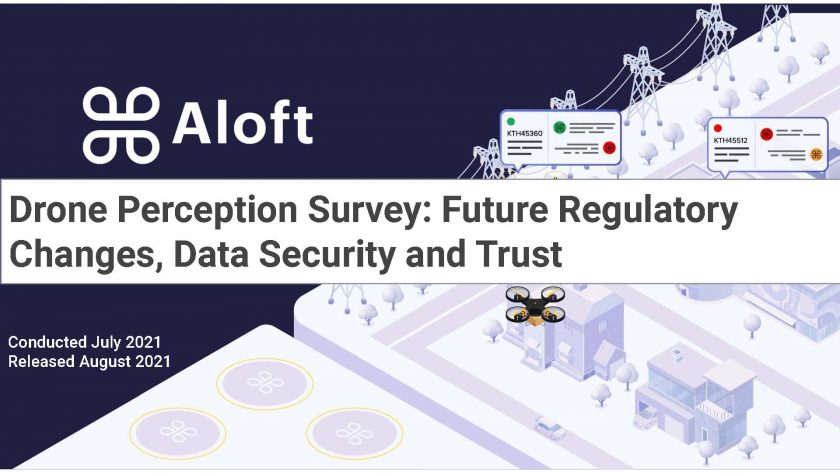Provider of U-space services, Aloft, has conducted a Drone Perception Survey entitled Future Regulatory Changes, Data Security and Trust. The study was carried out in July 2021 to gain insight into how drone pilots feel about future regulatory changes and the impact they could have on future drone use cases and operations. The survey was sent to Aloft users and subscribers and received 226 responses from a variety of industry users.
Below are the key findings from over 200 responses.
- The majority of respondents felt their network provider (i.e. cellular service provider), USS, and the FAA are keeping their data and personal information secure.
- The majority of respondents felt that the personal information required to be shared with the FAA in compliance with Remote ID will be safe.
- The respondents were nearly split on how easy they felt the implementation of Remote ID would be.
- The majority of respondents felt that future BVLOS regulatory changes could enable opportunities for drones to be used in new and innovative ways.
Read the full study results at: https://www.aloft.ai/blog/trust-opportunity-and-security-how-do-drone-operators-feel-about-future-regulatory-changes-for-the-drone-industry-from-remote-id-to-bvlos/
Summarising the results in a press release, Aloft said that as drone technology continues to evolve with more automation in hardware and software, the regulatory framework will need to change to meet these new capabilities and continue propelling the drone industry forward. Above innovation though, security and safety will always remain the cornerstones of aviation culture. Remote ID regulations and the adoption of UTM for enterprise drone programs will ensure that the future of the drone industry continues to evolve with data security and operational safety as the guiding forces. The implementation of Remote ID in 2023 for all UAS operators and the adoption of UTM systems by enterprises will provide greater airspace visibility and safety while also keeping each user’s data and personal information secure. The potential for future use cases to be enabled with BVLOS regulations is something that the users in this study confirmed is highly important for the advancement of the industry. The response from this study is clear, drone users are looking to regulators to continue evolving the industry’s regulatory infrastructure to support innovation and expand the possibilities for drone use cases in the future.
Aloft is a member of the board of the Commercial Drone Alliance (CDA) and also a member of the FAA’s new Beyond Visual Line-of-Sight (BVLOS) Aviation Rulemaking Committee.
For more information visit:




